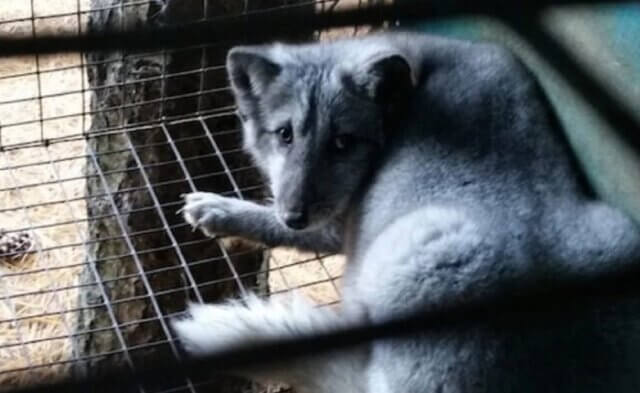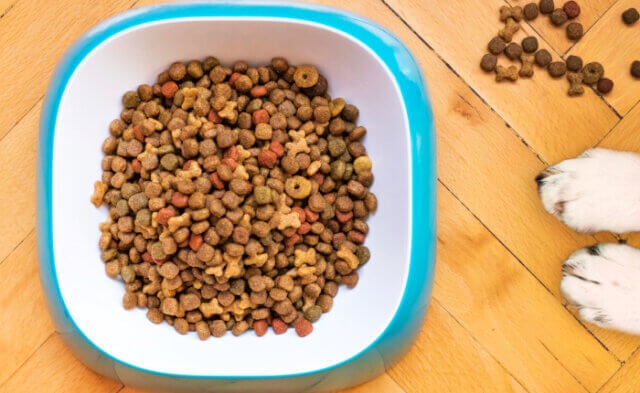If you’ve been to a natural foods store or upscale restaurant lately, you’ve likely seen signs proclaiming that at least some of the meat came from “humanely raised” animals. But what exactly does that mean? As a new PETA investigation has found, “humane meat” labels are often worth less than the recycled paper they’re printed on.
This summer, a PETA eyewitness worked at a Pennsylvania farm that claims to produce “humanely raised pork” and is a supplier to Whole Foods. The farm is certified as a “Step 2” pig farm by the Global Animal Partnership (GAP), a group spearheaded by Whole Foods with the goal of “improving animal welfare,” and is ranked higher and considered more animal-friendly than the majority of GAP-certified pig farms.
If you’re envisioning bucolic scenes with lush pastures, in which animals roam freely and breathe fresh air, think again.
Far from being free-roaming, the pigs on this farm spent almost all their time crammed into crowded sheds on concrete flooring. They never even touched the farm’s lush green grass, and the only time they were ever outside was when they were trucked from one shed to another, put on a scale to be weighed or sent to slaughter. Some pigs were kept in virtual darkness deep inside a barn.
Pigs had straw in the sheds, as required by GAP standards, but little other “enrichment.” Even though GAP requires that pigs’ “thermal comfort” be maintained at all times, on hot days, hundreds of pigs had access to a single water sprinkler.
On one day when the heat index exceeded 90°F, more than 20 pigs were tightly packed into a metal trailer more than 24 hours before they were hauled to slaughter—just because the manager didn’t want to wait another day to pull straw out of a pen. They had no choice but to stand or sit on top of each other for much of that time. On another day, several pigs were left on a trailer with no protection from heavy rain and approximately 60 mph winds.
Whole Foods’ standards require that sick or injured pigs be promptly euthanized if necessary, but PETA’s eyewitness saw obviously sick and injured pigs’ condition worsen for days or even weeks. If a veterinarian did provide these animals with care, the observer never saw it, despite more than two months of working full-time at the farm. One pig ran an intermittent fever for about a month before finally being shot in the head and killed. Another pig whose apparent neurological ailments caused her to go lame was left for eight days until she, too, was shot. Other pigs with grotesque rectal prolapses—as large as an orange and dripping with blood—were allowed to suffer in that condition without adequate care for up to 24 days.
The eyewitness documented the actions of a manager on the farm who grabbed and lifted pigs weighing over 70 pounds by their sensitive ears in order to vaccinate them. The manager also hit pigs being loaded for slaughter with a hard plastic board. Agitated, frustrated pigs bit each other’s tails, sometimes causing bloody wounds.
It’s understandable that consumers want to avoid supporting cruelty to animals when they shop, but it’s time for us to admit that “humane meat” is an oxymoron. Sparing animals some marginal cruelty in factory-farm practices is not the same thing as being “humane,” and it never will be. Even on farms that follow “humane”-certification standards to the letter, animals may still be castrated, branded and dehorned without painkillers; starve and become dehydrated because of lameness; be held in intensive confinement in unnatural conditions; and end up being scalded to death.
The only “humane meat” is vegan meat, which you can find in any well-stocked supermarket—including Whole Foods.
Dan Paden is an associate director in PETA’s Cruelty Investigations Department





